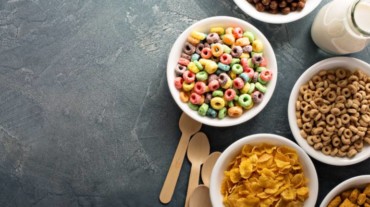
Are you suffering from vitamin D deficiency because you think there are no vegetarian sources of vitamin D? Well, we’ve got some good news for all you vegetarian folks out there! While sunlight remains the ultimate source of vitamin D, there are some exciting vegetarian options that can give your vitamin D levels a much-needed boost. Let’s take a look at the list of vitamin D foods for vegetarians.
Vitamin D is essential for overall health, and while sunlight is the primary source, there are vegetarian options that can contribute to improving your vitamin D levels. Whether you follow a vegetarian diet or simply want to diversify your nutrient intake, incorporating these vegetarian sources can help you meet your vitamin D needs.
Health Shots reached out to Avni Kaul, a Nutritionist and Dietitian, to ask for a list of vegetarian foods that are a good source of vitamin D:
Certain types of mushrooms, such as shiitake and maitake, can naturally produce vitamin D when exposed to sunlight. Including mushrooms in your diet can provide a plant-based form of vitamin D2, supporting your overall intake.

Also read: Is it risky to consume mushrooms during the monsoon season?
Many plant-based milk alternatives like soy milk, almond milk, and oat milk are commonly fortified with vitamin D. When shopping for these products, check the labels to ensure they have been fortified with vitamin D. “Incorporating fortified foods into your daily routine can significantly contribute to your vitamin D intake,” says Kaul.
Start your day with fortified breakfast cereals that contain added vitamin D. Look for cereals specifically labelled as fortified with vitamin D to ensure you’re getting an extra dose of this essential nutrient.

Some brands of orange juice are enriched with vitamin D. Opt for fortified orange juice to enjoy a refreshing beverage while boosting your vitamin D levels.
Paneer, a popular dairy product in India, can also be a source of vitamin D. However, the amount of vitamin D may vary. Including paneer in your diet can help meet your vitamin D needs, alongside other essential nutrients.
While fortified foods are a reliable source of vitamin D, dairy products such as milk, yoghurt, and cheese can contribute to your vitamin D intake. While the levels may not be as high as in fortified products, they can still be a valuable addition to your diet.
Select Topics of your interest and let us customize your feed.
PERSONALISE NOW
Also read: Vitamin D may help to get rid of period cramps, says study
The nutritionist advises that one should keep in mind that these sources might not provide sufficient vitamin D on their own, especially during periods of limited sunlight exposure. It’s generally recommended to spend time outdoors in the sun and, if necessary, consider a vitamin D supplement or consult with a qualified dietitian to assess your vitamin D levels and determine the best course of action.
Prioritise your health and ensure you’re getting adequate vitamin D to support overall well-being.
Get Latest Updates on Healthy Eating, Nutrition, Recipes, Superfoods